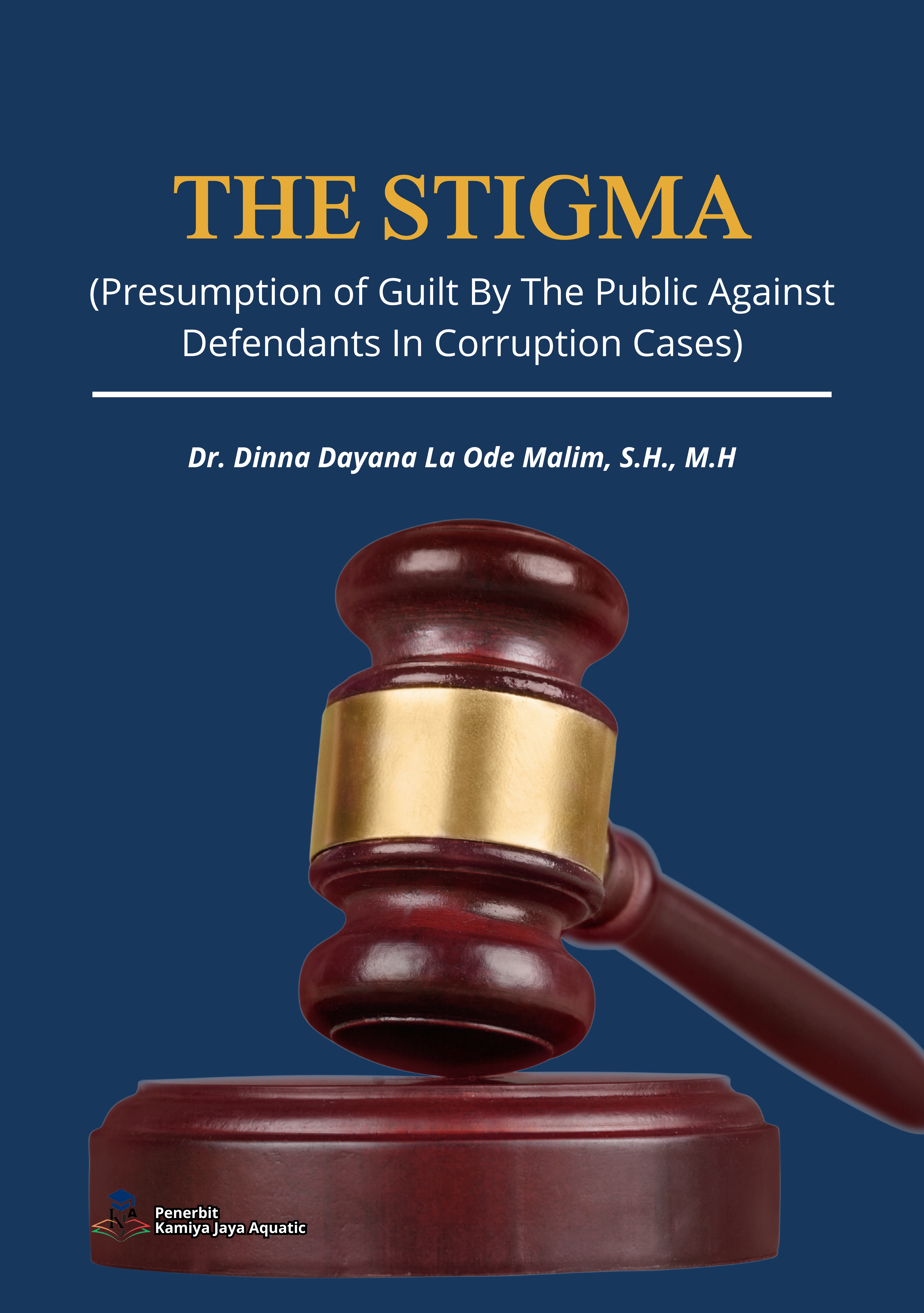THE STIGMA (Presumption of Guilt By The Public Against Defendants In Corruption Cases)

This book examines the crime of corruption in Indonesia from both a positivist legal perspective and through the lens of the public's presumption of guilt directed towards defendants. This societal presumption, the author argues, imposes a significant psychological burden on individuals accused of corruption due to the associated stigma. Crucially, it is noted that not all defendants in corruption cases are ultimately proven guilty by the courts. Conversely, the book also acknowledges that many defendants are indeed found guilty and similarly endure substantial psychological strain. Consequently, the author contends that within the context of corruption offenses, the criminal prosecution process itself effectively constitutes a form of 'death sentence', irrespective of whether a judicial capital punishment verdict is actually delivered. This assertion is substantiated by the observed phenomenon of numerous defendants dying while undergoing the criminal justice process, highlighting the extreme toll exacted by the proceedings.

